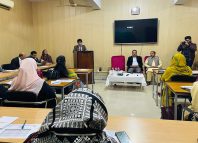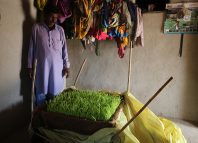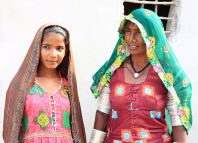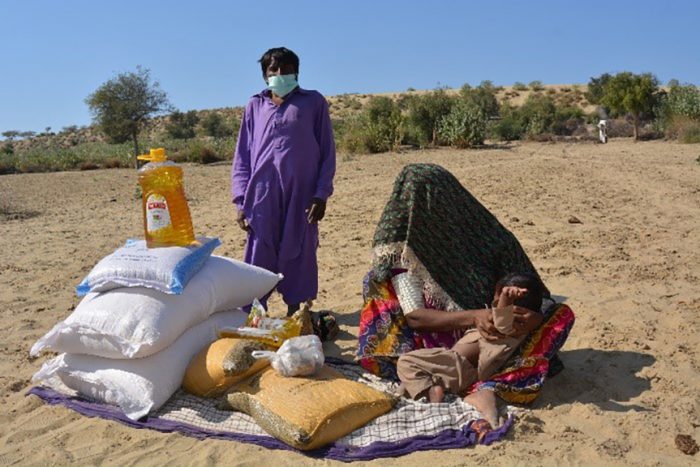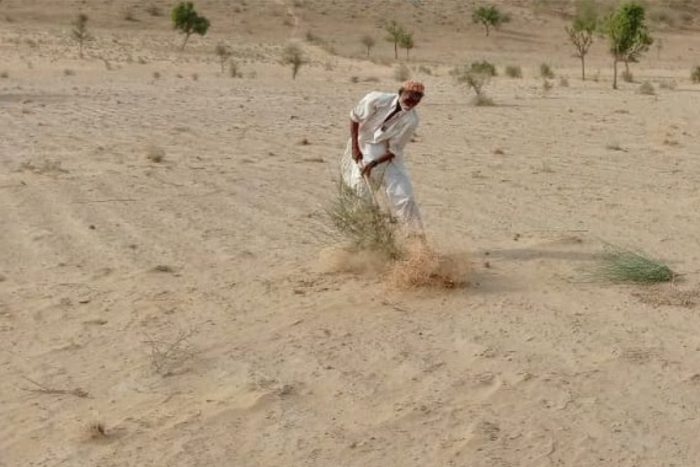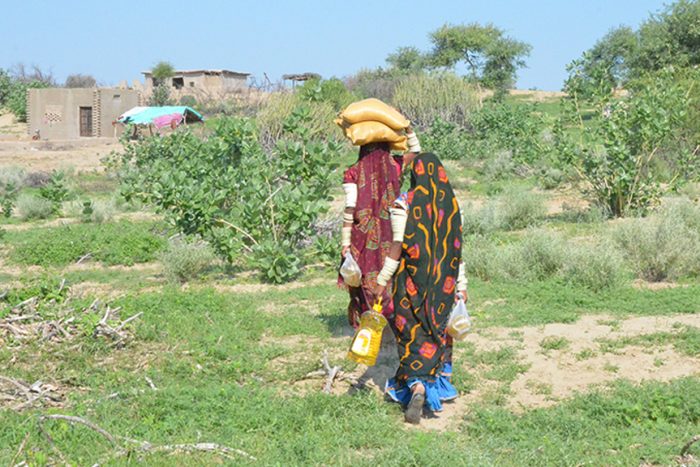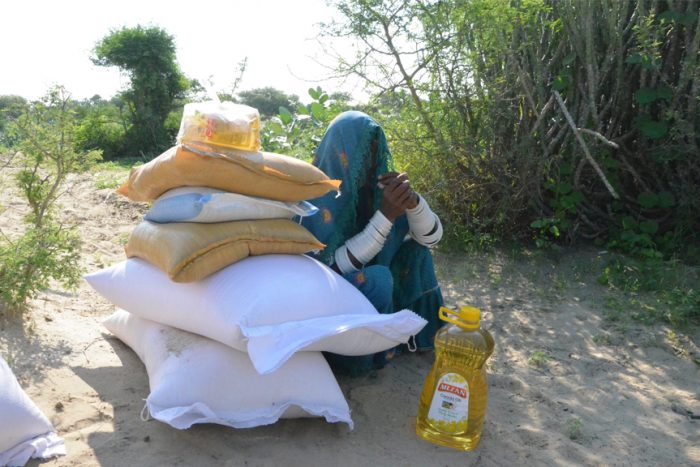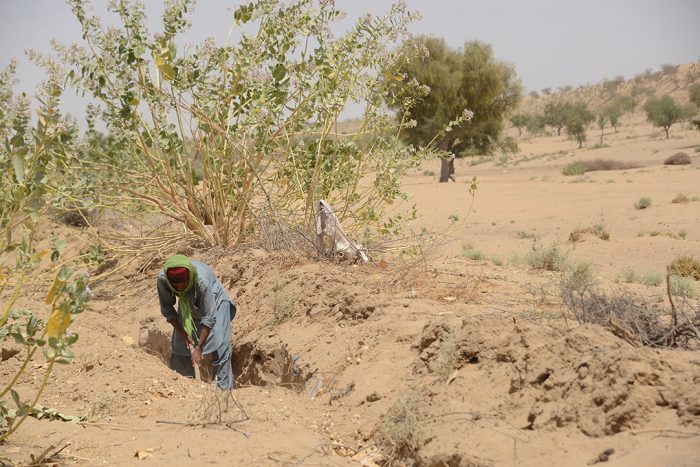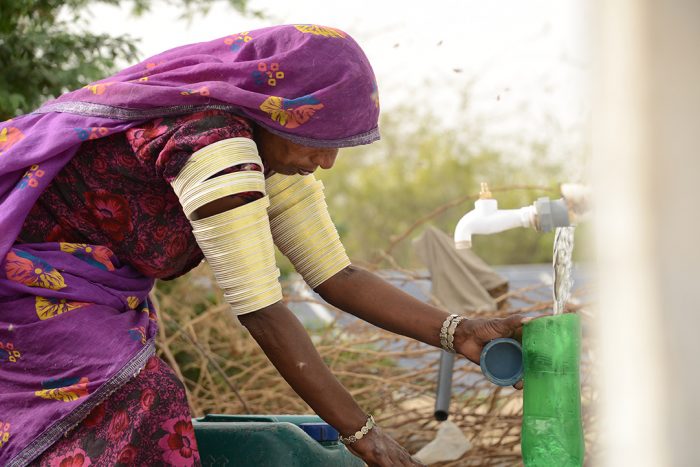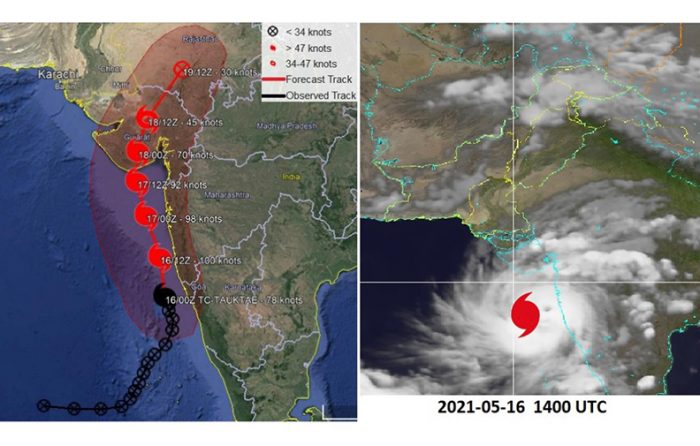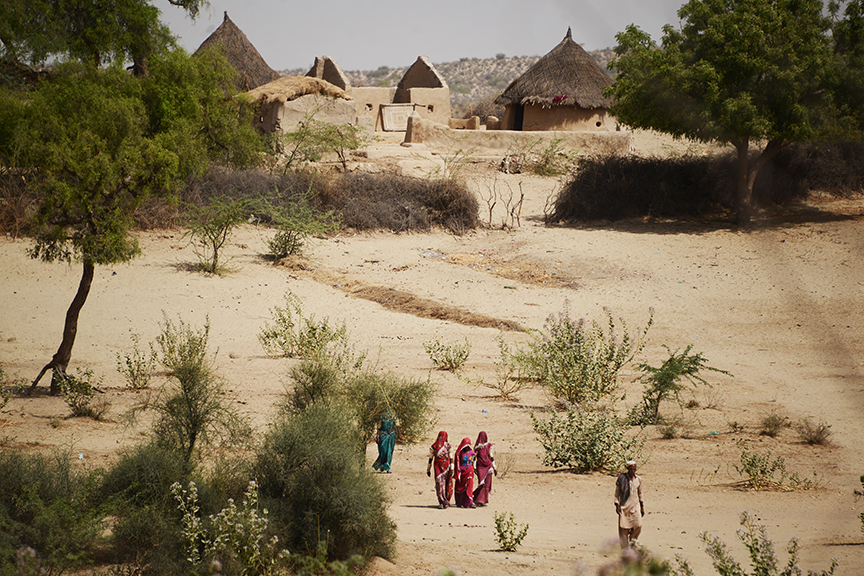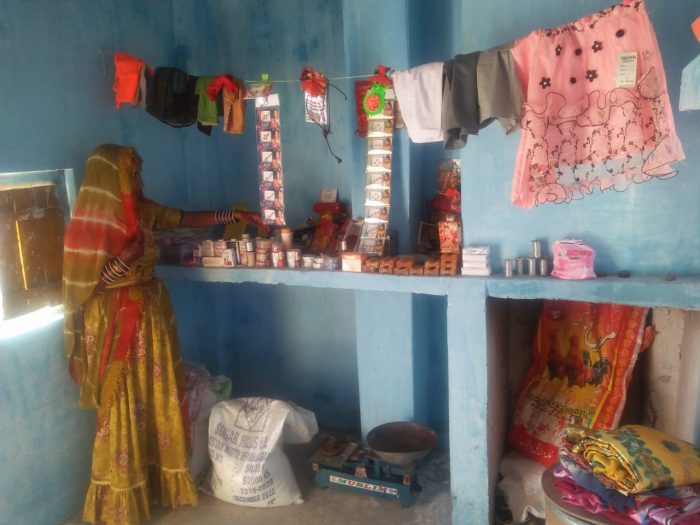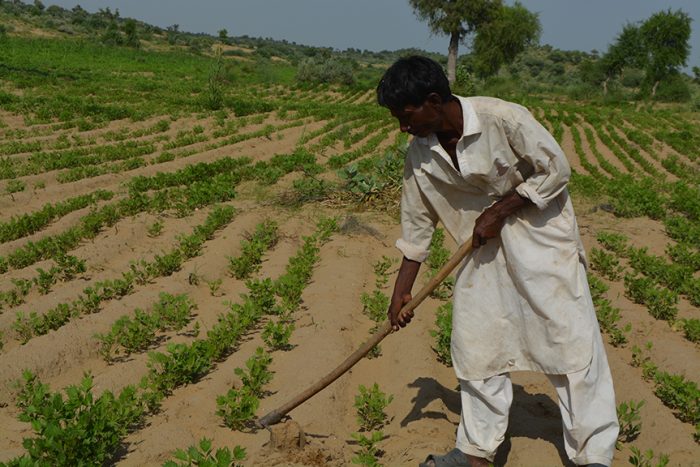Jetho, 41, resides in Rani village of Umerkot and is the only breadwinner for a family of six members, including his mother, grandmother, wife and two children. In 1990, when he was only 10 years old, Jetho was diagnosed with a bone disease. “I was not able to afford the treatment for the disease I contracted. From the government hospitals, the treatment cost was around PKR 5000 per month. My wife and mother applied some home remedies but that could not completely cure me. This condition stunted my growth and left me with a marginal disability. It is challenging to cope with the daily tasks but I have to push myself to do more as my family is dependent on me.” Agriculture is Rani village’s main source of income. In July and August, during the monsoon season, Jetho grows a variety of crops on his two-acre plot of land, including cluster beans, millet, mung, and sesame. Crop production is strongly reliant on the amount of rain that falls in the area. A good harvest allows Jetho to earn an estimate of PKR 7000 per month as he sells the surplus in the markets of Kunri and Umerkot City. Unfortunately, Rani village has not received enough rain in the last five years. As a result, Jetho started supplementing his income with managing cattle for other villagers. He earnt PKR 2500 each month through this.
Belonging to a family of generational farmers who have been growing seasonal, monsoon reliant crops, Jetho, like several others has struggled to get any harvest or produce for years since the drought started hitting their village. Farmers of Rani village have thus abandoned their lands and have switched to other labour work that allows them to earn some money. The COVID-19 pandemic further decreased work opportunities for many local communities in the area as many small and large businesses suffered losses due to lack of sales and lockdowns. Jetho is struggling to make ends meet due to lower wages. “I could not afford to buy any more seed to plough the ground. I do not see any harvest this season. The lack of rain and low agricultural production has dropped my earning by 45%. To make ends meet, I have to borrow money from my relatives or purchase food items on credit from local shops.”
Community World Service Asia’s and UMCOR’sⁱ emergency project provided humanitarian and recovery assistance to vulnerable households that are frequently impacted by natural catastrophes and climate change impacts in Umerkot. The project ensured access to emergency food and agricultural seeds for disaster-affected people so that they could resume their livelihood activities. Jetho was one of the 608 families who received food packages and eight kg of millet seeds to help commence agrarian farming. The food package contained 80 kilograms of wheat flour, 15 kilograms of rice, 8 kilograms of pulses, 7 litres of oil, 4 kilograms of sugar, 400 grams of tea leaves, and 800 grams of iodized salt, and a matchbox.
With this support, Jetho’s family is now able to eat three meals a day, with adequate portions for every family member. Farmers in arid parts of Umerkot have adapted to climate change by switching from ploughing water-intensive rice, sugarcane and maize cultivation to drought-resistant millets. Farmers in this area are encouraged to shift to growing millet, to reduce the impacts of climatic changes on their food security and standard of living.
ⁱ The United Methodist Committee on Relief


